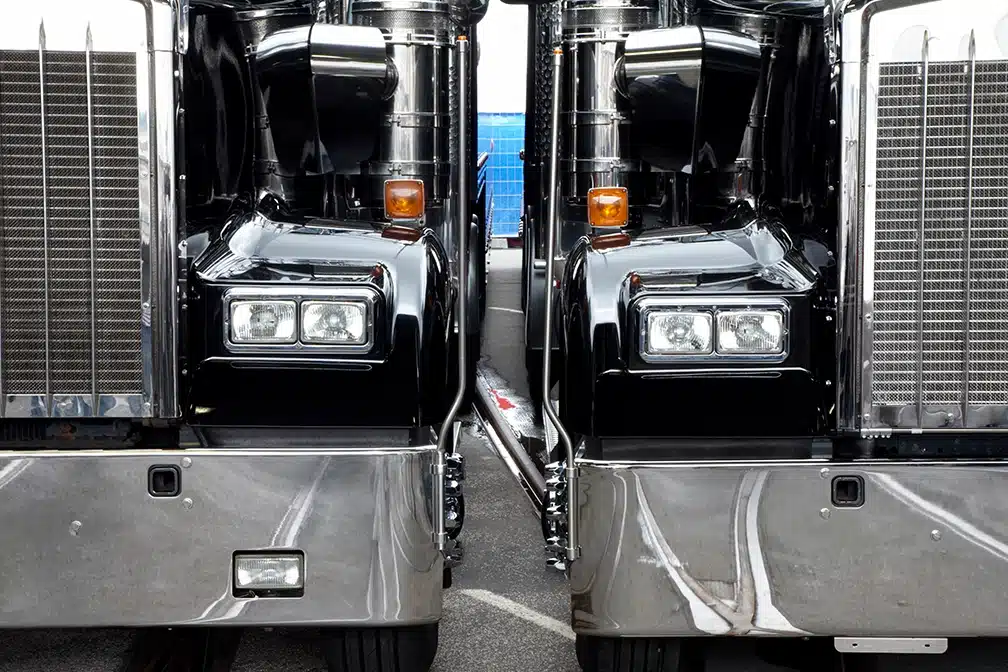In a significant legal settlement, the landscape of truck driver classification has seen a notable shift. After nearly 14 years of courtroom battles, a settlement has been
More
May 19, 2024 7:27 pm

Many bills have been introduced in the U.S. House of Representatives that aim to increase the maximum weight of trucks in certain circumstances. However, these proposals have faced opposition from some industry stakeholders.
Recently, a coalition of groups, including the Owner-Operator Independent Drivers Association, wrote a letter to the leaders of the House Transportation and Infrastructure Committee expressing their opposition to any legislation that would raise truck weight or length limits.
Despite this opposition, the committee went ahead and passed H.R. 3372. This bill establishes a 10-year pilot program that permits a maximum weight of up to 91,000 pounds for certain six-axle trucks, or the maximum weight allowed by bridge formulas. However, carriers are not allowed to add more trailers to meet the higher weight limits or axle requirements. Additionally, states have the option to participate or withdraw from the program, even if they already allow weights over 80,000 pounds.
Dave Williams, the Chairman of the Truckload Carriers Association and Senior Vice President of Knight-Swift Transportation acknowledged the importance of gathering safety data but expressed concerns about the potential impact of increased truck weights on highway safety and infrastructure.
The largest union in the industry shares similar concerns. In a joint statement, Teamsters Freight Division Director John Murphy and Teamsters Carhaul Division Director Avral Thompson rejected the idea that the only way to determine if heavier trucks are safe is through an unrestricted pilot program. They cited the agreement among the Department of Transportation, civil engineers, and drivers that heavier trucks pose risks to motorists and infrastructure. They also highlighted that states that already permit trucks heavier than the federal limit have higher rates of safety violations and more severe crashes.
As a truck driver, you can read the trucking industry news-related articles.
 Don’t Miss:
Don’t Miss:
Another bill, the Carrying Automobiles Responsibly and Safely (CARS) Act (HR 2948), proposes a 10% weight tolerance specifically for stinger-steered automobile transporters that carry heavier hybrid and electric passenger cars. This bill aims to reduce the number of truck trips required by allowing trucks to fully load their equipment without exceeding federal weight limits.
While these bills seek to improve efficiency by moving more freight with fewer truck trips, concerns remain about the potential impact of higher weights on infrastructure. Dave Williams reiterated these concerns, emphasizing the need to consider the consequences for roadway safety and infrastructure.
In addition to H.R. 3372, the House Transportation and Infrastructure Committee passed two more bills that permit trucks to exceed current weight limits. The Dry Bulk Weight Tolerance Act allows a 10% weight tolerance for dry bulk carriers to account for cargo shifting during transit. H.R. 3447 provides a 2,000-pound weight exemption for hydrogen-powered vehicles, similar to the exemption already applied to battery-electric and natural gas-powered heavy-duty trucks.
It is important to consider the potential implications of increased truck weights on road safety and the overall condition of the infrastructure. While gathering safety data is appreciated, it is crucial to address the risks associated with heavier trucks thoughtfully.
The bills have sparked a debate within the industry, with some groups expressing opposition due to the perceived risks involved. They argue that determining the safety of heavier trucks should not rely solely on an unrestricted pilot program. Instead, they point to existing evidence from the Department of Transportation, civil engineers, and drivers, which suggests that heavier trucks pose identifiable risks to both motorists and infrastructure.
Furthermore, concerns have been raised about states that already permit trucks exceeding the federal weight limit. These states have reported higher rates of safety violations and more severe crashes involving these heavier trucks. This existing data reinforces the argument against the need for a pilot program to confirm what is already known.
For more information and articles from the trucking industry, follow us on Facebook or subscribe to our Truck Driver News newsletter.
In a significant legal settlement, the landscape of truck driver classification has seen a notable shift. After nearly 14 years of courtroom battles, a settlement has been
MoreCalifornia's ZEV Mandate Presents Difficult Realities for Truckers: Balancing Sustainability and Trucking Needs in the Issue of Zero Emission Vehicles.
MoreIn a welcome shift, the average diesel prices across the United States have been witnessing a steady decline, bringing some much-needed relief to the trucking community. Since
MoreIn a significant move on February 29, 2024, the Federal Motor Carrier Safety Administration (FMCSA) announced the removal of five
MoreAs a truck driver, you possess a wealth of knowledge and firsthand experiences that are valuable not only within your
MoreWhile historical practices, cost considerations, and regulatory factors offer context for the absence of reverse lights on van and reefer
MoreFMCSA's FY 2024-2027 Strategic Plan Goals and Objectives, highlighting their alignment with government strategic planning requirements, accomplishments from the previous
MoreSemi-Truck Drag Racing: When it comes to drag racing, one typically envisions sleek sports cars and muscle cars tearing down
More